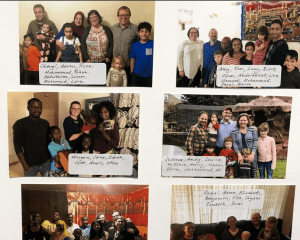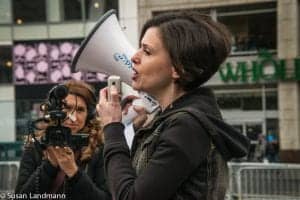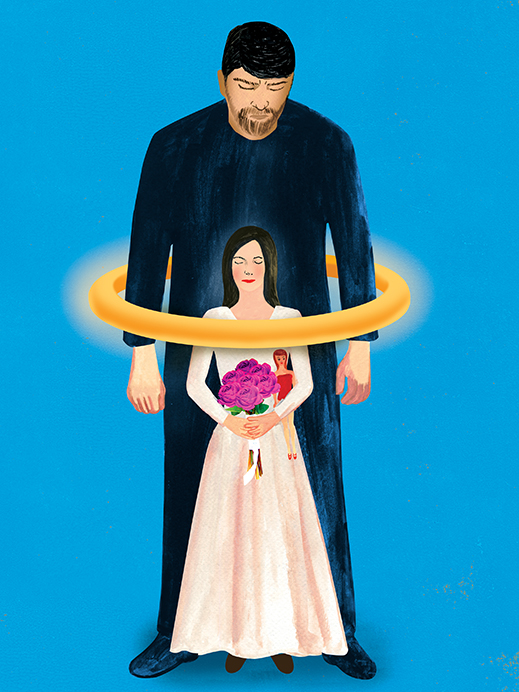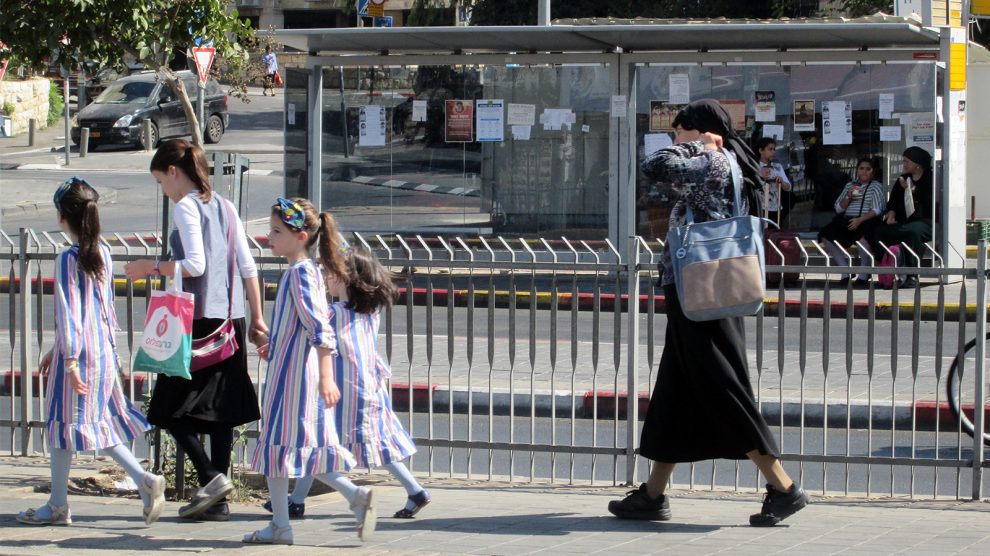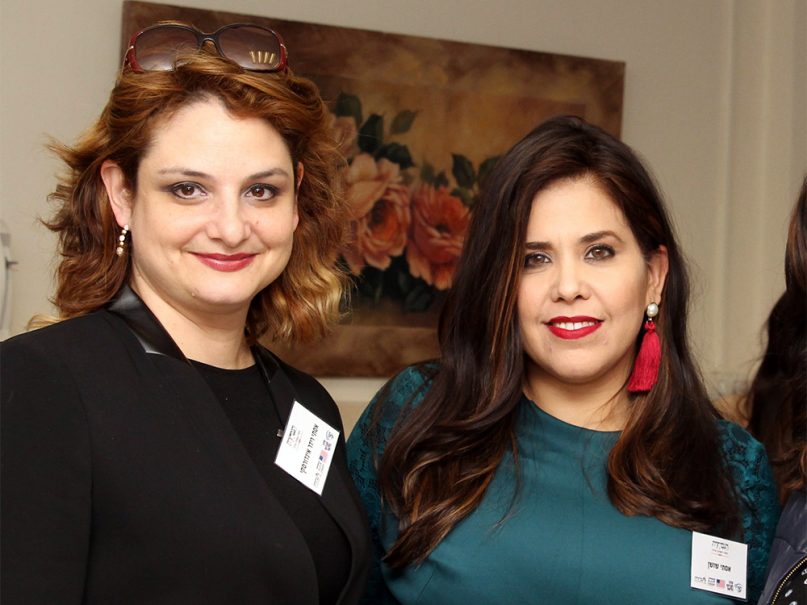Courtney Smith is leading a life of service, helping youth who are experiencing homelessness in Detroit with her nonprofit organization, the Detroit Phoenix Center. She is the founder and CEO of the center which opened in 2017 and is the youngest CEO of a homeless youth service provider in the city and the only woman of color.
Smith, 29, knows what it’s like to experience homelessness at a young age. A Detroit native, she was in the foster care system as a baby until she was adopted at three years old. Throughout the years, family conflict and challenges arose at home, forcing her to go into a shelter for teens at the age of 15.
From then through her early 20’s, she was in and out of different shelters and staying with family members and friends. As an undergraduate honor student at Eastern Michigan University who nevertheless continued to struggle with homelessness, Smith realized that it was a systemic issue that needed to be addressed.
According to Michigan League for Public Policy, “One in 30 unaccompanied youth ages 12-17 will experience homelessness in a given year. This number jumps to one in 10 from age 18-24. Youth who are in or aging out of foster care, involved in the juvenile justice system, identify as LGBTQ, or are Black or part of the Latinx community are also more likely to experience one or more instances of homelessness between the ages of 12 and 24.”
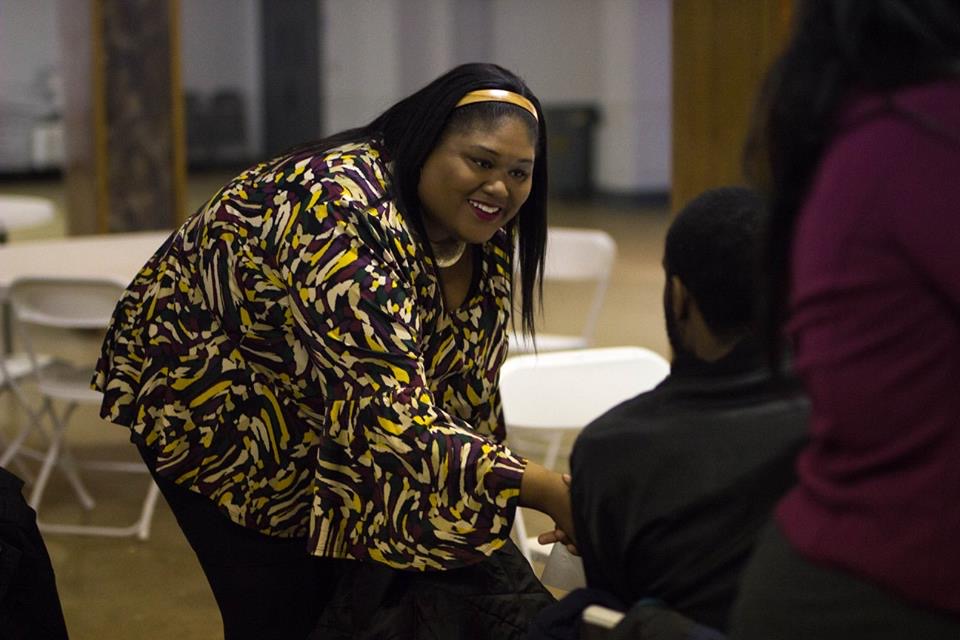 Courtesy of Courtney Smith
Courtesy of Courtney Smith
From 2013-2016, Smith worked at the National Association for the Education of Homeless Children and Youth as the Michigan youth task force coordinator, responsible for bringing service providers and youth together to find solutions to end homelessness in their communities. Smith left Detroit in 2015 (still working remotely for NAEHCY) and headed to Kentucky to do a year at AmeriCorps, where she worked at a community center serving immigrants and refugees.
In 2016, Smith returned to her hometown to help her family and youngest brother, Blair. While trying to help Blair and his friends secure housing and resources, she asked herself, ‘Where do people like my brother, who may not identify themselves as someone who is experiencing homelessness, go?’
That same year, she submitted a proposal to join the Millennial Trains Project to help find solutions to the issue of youth experiencing homelessness. The organization provided Smith and 25 social service entrepreneurs training, resources, and the opportunity to travel to six different communities and learn from CEOs of non-profit organizations. Smith was one of the five social service entrepreneurs who received a $10K grant.
During the trip, she met a 16-year-old girl who shared her experiences and told Smith how helpful drop-in centers were. She loved the idea.
“She said the best way that you can thank me is to go back to your own community and do something,” Smith said in an interview with theGrio.“This 16-year-old-girl really challenged me to put my money where my mouth was, and I didn’t have [any] money, so I was really moved by that.”
She continues, “It just so happened that I got on the train in the year that the last stop, for the first time that they’ve ever done this, the train was actually going to be in my city. So I convened a group of youth in Detroit and a group of stakeholders, and I talked to them about this model of a drop-in center and we built out what is known today as the Detroit Phoenix Center.”
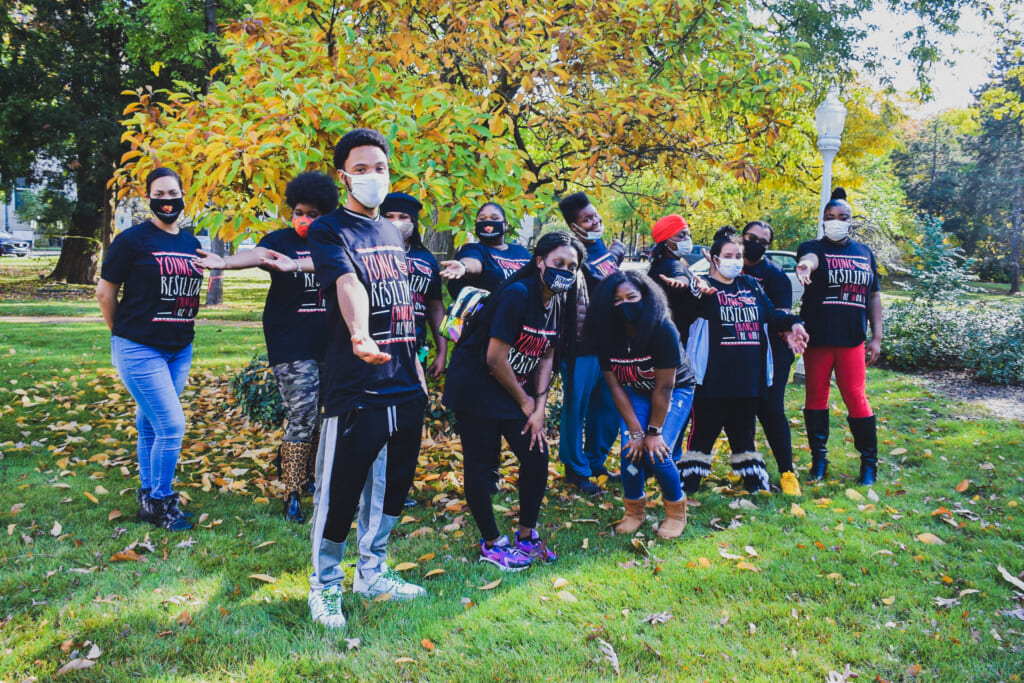 Courtesy of Courtney Smith
Courtesy of Courtney Smith
Detroit Phoenix Center opened in January 2017. It is a low barrier resource center where young people can drop in off the street. They can shower, wash clothes, get emergency assistance, food, and access to mental health resources. If they need housing that night, the organization connects them with housing. They also have an after-school enrichment program along with life skills and educational courses.
“So we don’t just focus on basic needs,” Smith explains.”We also focus on career readiness, life skills, educational workshops. We also have a youth action board. The Youth Action Board is comprised of a group of youth who were with us when we first started to make sure that our work is youth-centric.”
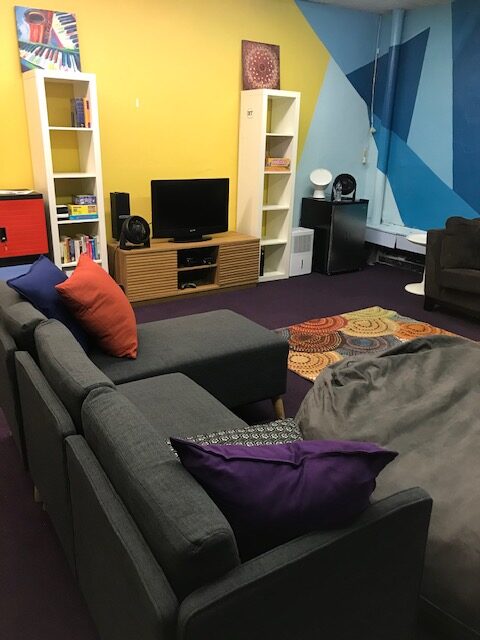
Young people serviced by the program can apply for a 12-month fellowship to learn about nonprofit leadership, nonprofit management, and advocacy.
“We believe that those who are closest to the problem need to be the ones driving the solutions,” Smith says. “So we want to empower the youth that we serve to be change agents in the community and also to hold us accountable as an agency to make sure that we don’t get too far removed from the heart of the matter. “
Like many organizations and businesses impacted by COVID-19, Detroit Phoenix Center has had to make some changes. The building the center was leasing closed so they’ve transitioned to virtual and mobile services. Throughout the pandemic, the center’s youth fellows have remained involved by helping register voters and providing legwork for supply giveaways and more.
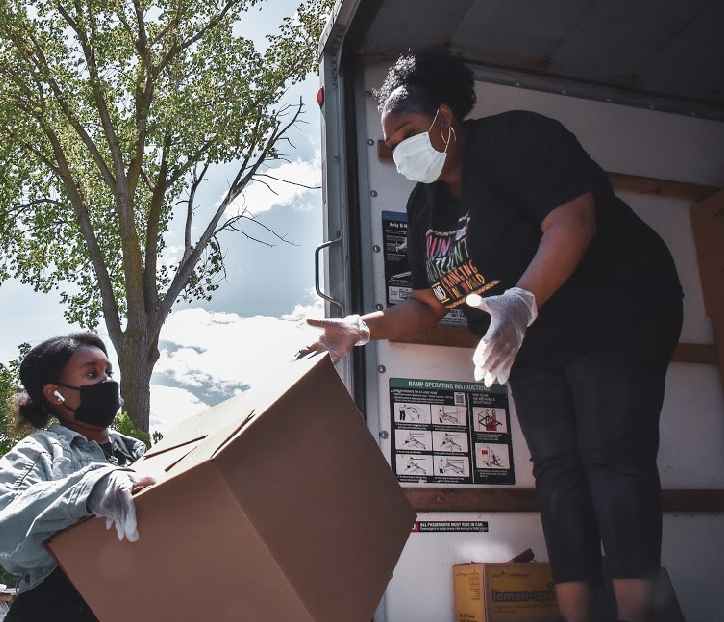
“We had to go out and literally find the youth,” Smith shares. “We had to go to hotels. We had to go to the abandoned houses. We had to go to the last known address and thankfully, we haven’t lost any of our young people, but it definitely changed the scope of what we do.”
Smith and her team have delivered care packages, clothing, paid security deposits and outstanding rent and provided hotel vouchers for emergency housing.
“We did mental health workshops,” continues Smith.”We paid cell phone bills. We delivered laptop computers and routers. We literally provided wraparound support during this time. We’ve been able to serve more youth in the community because, again, transportation was a barrier. But since we have literally been taking our services to the young people, they’ve been reaching out through word of mouth.”
On Nov, 30, the Detroit Phoenix Center is launching a social media challenge for their December fundraising campaign One Night Without a Bed.
“It’s a call-to-action,” says Smith. “We want people to give up their bed for one night in December for the 4.2 million young people who experience homelessness on any given night. ‘We’re kicking it off on Nov. 30th, which is the last day of National Homeless Youth Awareness Month.”
Though youth homelessness is often talked about as a separate issue, Smith believes you can’t talk about youth homelessness without talking about poverty, educational disparities, and health outcomes.
“We have to really look at youth homelessness in relation to other systems…like the juvenile justice system,” she explains. “And the only way that we can truly, truly break the cycle of youth homelessness in our community is if all those systems work together to really move the needle. And also, to really, truly elevate the voices in the lived experiences of young people in the community and those who have actually experienced homelessness and center their voices and center their experiences in our solutions.”
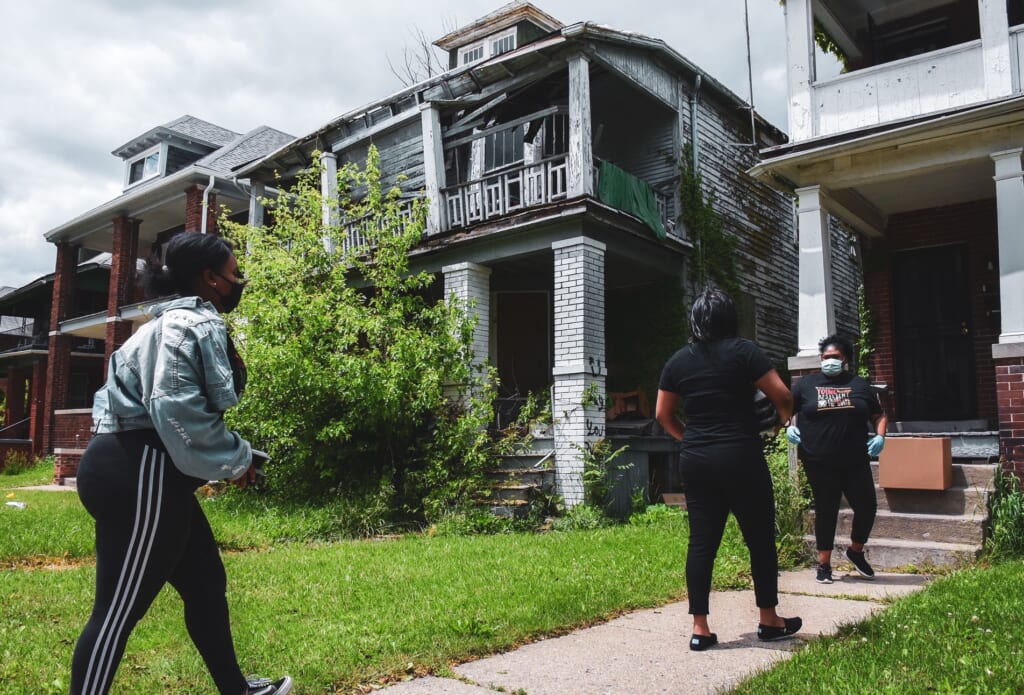
Smith shared her advice to those who are interested in creating more Black-owned nonprofit organizations that are helping young people in need. “I would definitely tell them that we are uniquely positioned to really create the change in the community that we want.”
“No one is more qualified than we are,” Smith continues. “And you deserve to be at the table. And if you don’t have a seat at the table, then you need to open up a window to build your own table. Do what you need to do to bring your passion to fruition. One thing that I always remember, even in moments where I’m doubting myself, is that someone else’s life…someone else’s freedom, someone else’s joy is attached to my purpose, and that is a big calling, that is a deep calling.”
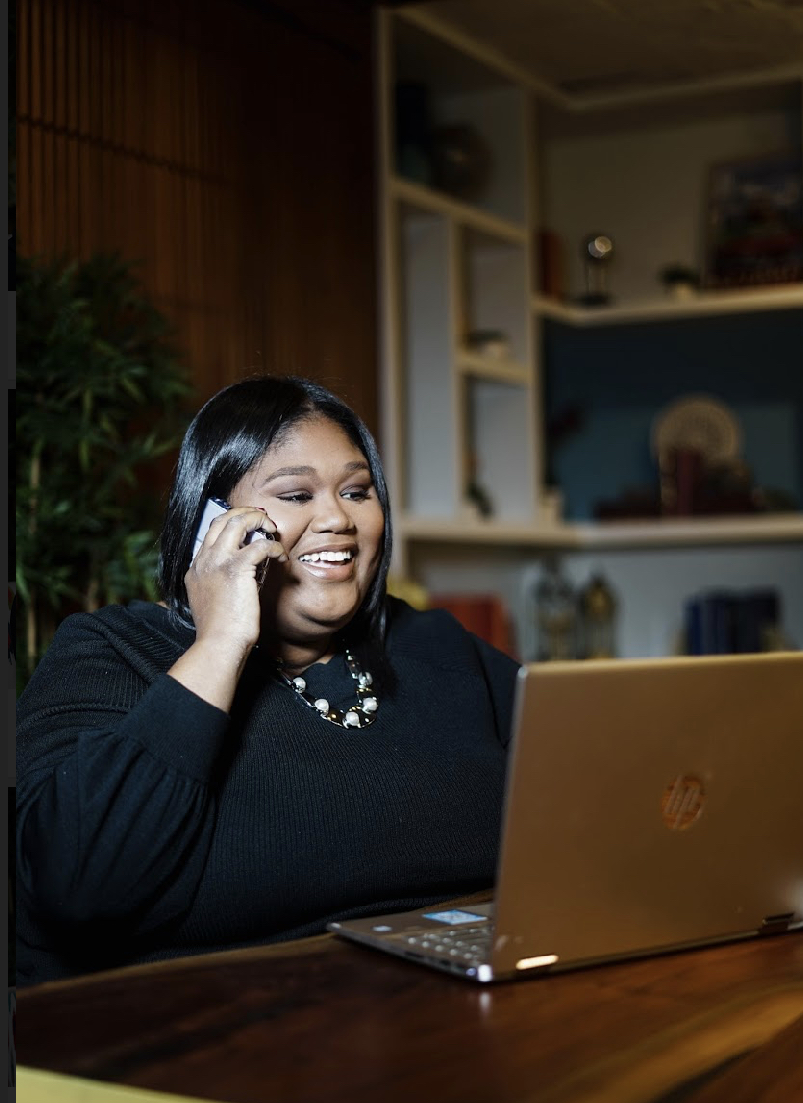
On the opening day of the Detroit Phoenix Center, Smith learned her youngest brother, Blair Smith, transitioned by suicide at the age of 19. Her brother’s life and his legacy are embedded in the very mission of the Detroit Phoenix Center and she has started a scholarship fund in his honor.

